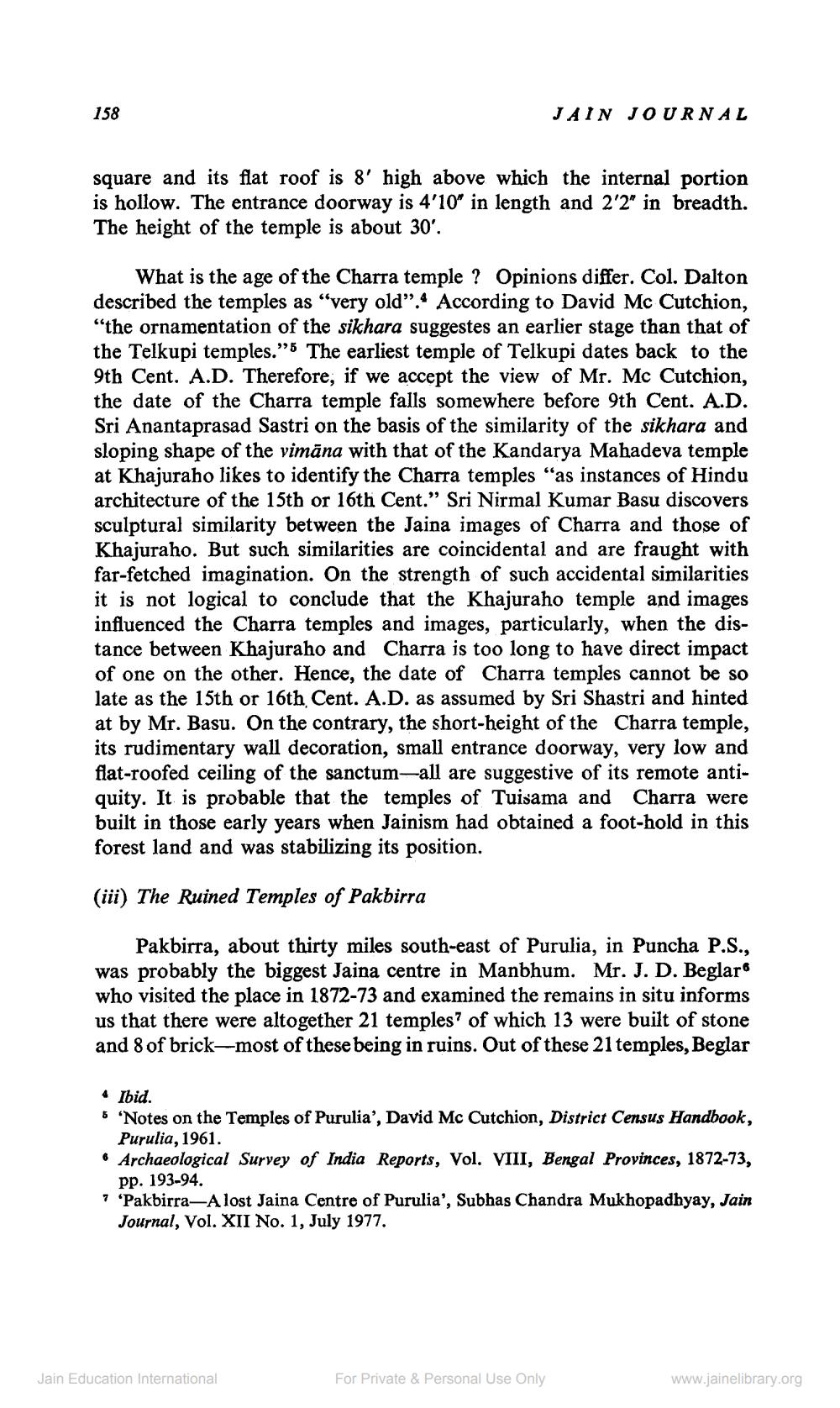________________
158
square and its flat roof is 8' high above which the internal portion is hollow. The entrance doorway is 4'10" in length and 2'2" in breadth. The height of the temple is about 30'.
JAIN JOURNAL
5
What is the age of the Charra temple? Opinions differ. Col. Dalton described the temples as "very old". According to David Mc Cutchion, "the ornamentation of the sikhara suggestes an earlier stage than that of the Telkupi temples." The earliest temple of Telkupi dates back to the 9th Cent. A.D. Therefore, if we accept the view of Mr. Mc Cutchion, the date of the Charra temple falls somewhere before 9th Cent. A.D. Sri Anantaprasad Sastri on the basis of the similarity of the sikhara and sloping shape of the vimana with that of the Kandarya Mahadeva temple at Khajuraho likes to identify the Charra temples "as instances of Hindu architecture of the 15th or 16th Cent." Sri Nirmal Kumar Basu discovers sculptural similarity between the Jaina images of Charra and those of Khajuraho. But such similarities are coincidental and are fraught with far-fetched imagination. On the strength of such accidental similarities it is not logical to conclude that the Khajuraho temple and images influenced the Charra temples and images, particularly, when the distance between Khajuraho and Charra is too long to have direct impact of one on the other. Hence, the date of Charra temples cannot be so late as the 15th or 16th Cent. A.D. as assumed by Sri Shastri and hinted at by Mr. Basu. On the contrary, the short-height of the Charra temple, its rudimentary wall decoration, small entrance doorway, very low and flat-roofed ceiling of the sanctum-all are suggestive of its remote antiquity. It is probable that the temples of Tuisama and Charra were built in those early years when Jainism had obtained a foot-hold in this forest land and was stabilizing its position.
(iii) The Ruined Temples of Pakbirra
Pakbirra, about thirty miles south-east of Purulia, in Puncha P.S., was probably the biggest Jaina centre in Manbhum. Mr. J. D. Beglar who visited the place in 1872-73 and examined the remains in situ informs us that there were altogether 21 temples' of which 13 were built of stone and 8 of brick-most of these being in ruins. Out of these 21 temples, Beglar
4 Ibid.
5 'Notes on the Temples of Purulia', David Mc Cutchion, District Census Handbook, Purulia, 1961.
• Archaeological Survey of India Reports, Vol. VIII, Bengal Provinces, 1872-73, pp. 193-94.
7 'Pakbirra-A lost Jaina Centre of Purulia', Subhas Chandra Mukhopadhyay, Jain Journal, Vol. XII No. 1, July 1977.
Jain Education International
For Private & Personal Use Only
www.jainelibrary.org




